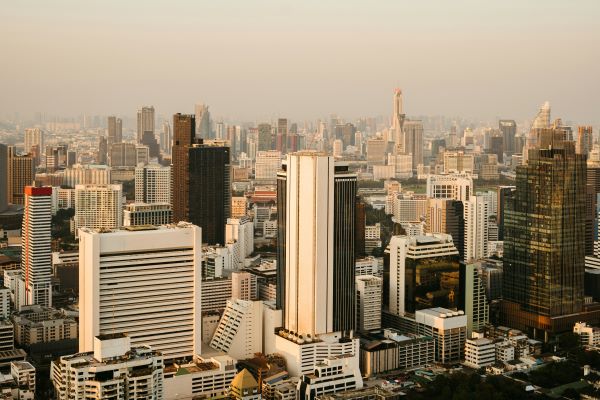Global Practice
Related Blogs

by:Kensho Onoda、Poom Kerdsang Introduction Establishing a business in Japan requires navigating a legal landscape fundamentally different from other countries. A core premise is that Japan operates under a Civil Law system, distinct from the Anglo-American Common Law tradition. Contract under Civil Law 1. Civil Law Characteristics Civil law is a legal system developed primarily in France and Germany. It is characterized by a comprehensive legal order built around codified statutes. Japan’s Civil Code, enacted in the late 19th century, was also significantly influenced by the German and French Civil Law systems. Consequently, Japanese legal practice begins by considering “which…

by:Kensho Onoda、Poom Kerdsang Summary Introduction Japan’s Act on the Protection of Personal Information (“APPI”) is a comprehensive data protection framework designed to balance the protection of individual (data subject) rights while promoting the effective use of data. APPI imposes obligations such as specifying and notifying the purpose of use, prohibiting use beyond the specified purposes, implementing security safeguards, restricting the provision of personal information to third parties, and responding to requests from individuals. While APPI shares similarities with other major data protection regimes, including the GDPR, it also incorporates several unique concepts, such as “Personal Related Information”, that require…

by:Kensho Onoda、Poom Kerdsang Introduction One of the most important initial decisions when establishing a corporation in Japan is to decide on an appropriate corporate governance structure. The corporate governance structure determines how decision-making, business execution, and oversight are structured within the company. Under Japan’s Companies Act, companies have a certain level of flexibility in selecting and combining governance bodies, provided that the statutory requirements are met. An effective governance structure should reflect the company’s size, capital composition, and shareholder relationships. This article provides a detailed explanation of the fundamental concepts of corporate governance structure, available legal framework, and practical…

by:Kensho Onoda、Poom Kerdsang 0. Introduction Advertising and marketing activities in the Japan are subject to strict consumer protection rules. At the center of these rules is the Act against Unjustifiable Premiums and Misleading Representations (the “Premiums and Representations Act”). This article focuses particularly on the Act’s regulation of representations (“advertising claim”), outlining the its objectives, regulatory requirements, violation consequences and risks, as well as key considerations for foreign companies seeking to enter the Japanese Market. 1. Overview The Premiums and Representations Act was enacted in 1962 and is administered by the Consumer Affairs Agency as part of Japan’s consumer…

by:Kensho Onoda、Poom Kerdsang Introduction Foreign companies and entrepreneurs expanding into Japan often face a unique choice between two types of limited liability companies: Kabushiki Kaisha (K.K.) and Godo Kaisha (G.K.). While both forms protects owners with limited liability, they differ significantly in key respects such as incorporation costs, operational flexibility, social credibility, and fundraising capacity. Understanding these differences is crucial for selecting the structure that best aligns with your business objectives in Japan. This article explains the features of each and offers practical guidance to help businesses make the right choice. 1. Historical Background and Basic Structure Kabushiki Kaisha…

by:Kensho Onoda、Poom Kerdsang Introduction The Japanese market, with its scale, consumer purchasing power, and high technological capabilities, is an attractive investment destination for many companies, including overseas startups. However, Japan’s legal system and business practices can differ significantly from those abroad. Choosing the right base structure for market entry is a crucial strategic decision that can significantly impact future business development. This column explains the characteristics, advantages, and disadvantages of four main forms that foreign companies should consider when entering Japan: establishing a subsidiary, setting up a branch office, opening a representative office, and acquiring a local corporation….

by:Kensho Onoda、Poom Kerdsang 1. Methods of Recruitment When hiring personnel in Japan, foreign companies can utilize services broadly categorized into “public agency support” and “private services.” 1-1. Support from public agencies The most representative example is the Public Employment Service (called “Hello Work”), administered by the Ministry of Health, Labour and Welfare. Hello Work offices are located nationwide and provide free job matching services for all occupations. By submitting job postings, companies can reach a wide range of job seekers, and Hello Work also serves as a window for procedures related to labor insurance. At Hello Work, communication is generally…

by:Nitchakamon Suliya, Panatchayamol Phungam Thailand has enacted a range of labor laws designed to protect the rights of both Thai and foreign employees. Among these, the Labor Protection Act (“LPA”) plays a particularly important role, especially through the function of the labor inspector, who is empowered under the Act to receive and investigate complaints—exclusively from employees. When disputes arise between an employer and employee, the employee can choose to either: File a complaint with a labor inspector, or Bring a case to the Labor Court. In practice, most employees choose the former, as the process is generally faster, more accessible,…

by:Poom Kerdsang、Arisara Rungsri 1. Introduction Thailand was one of the first countries to be severely affected by the COVID-19 outbreak, significantly disrupting its economic growth. Nevertheless, Thailand’s economy persevered and ranks among Asia’s top ten strongest economies, with a GDP growth of 3.2% in the fourth quarter of 2024[1]. Its strategic location, skilled workforce, and business-friendly policies have helped establish Thailand as a favored destination for foreign direct investment. The Thai government actively promotes foreign investment by offering a range of incentives across key industries. The Board of Investment of Thailand (BOI) provides one of the most beneficial promotional programs….
Related Seminars























